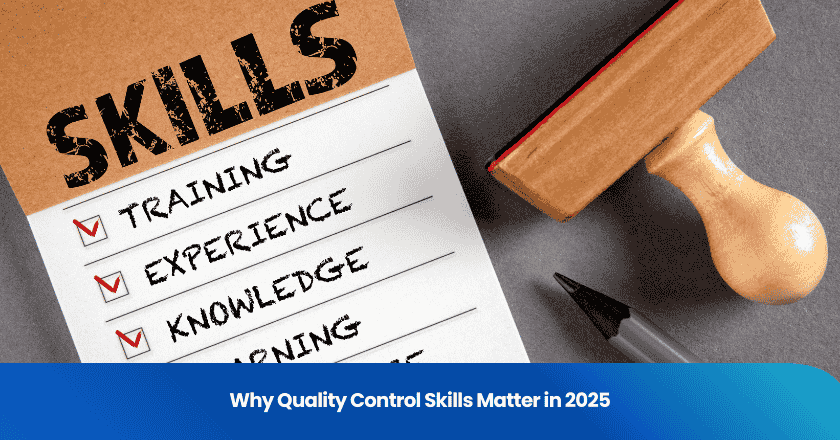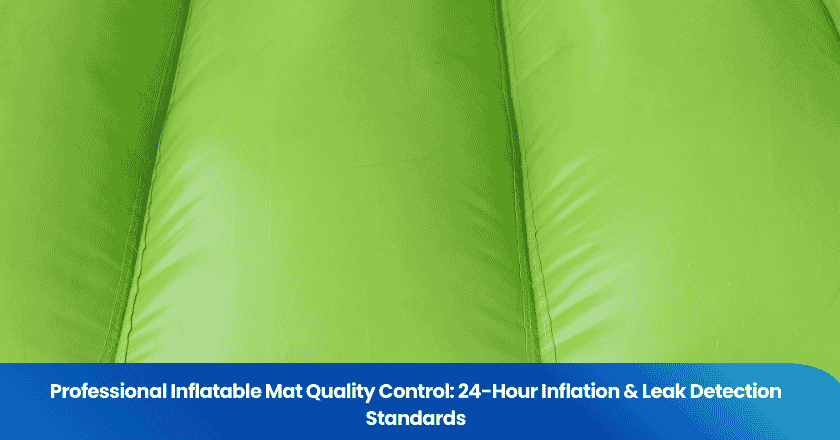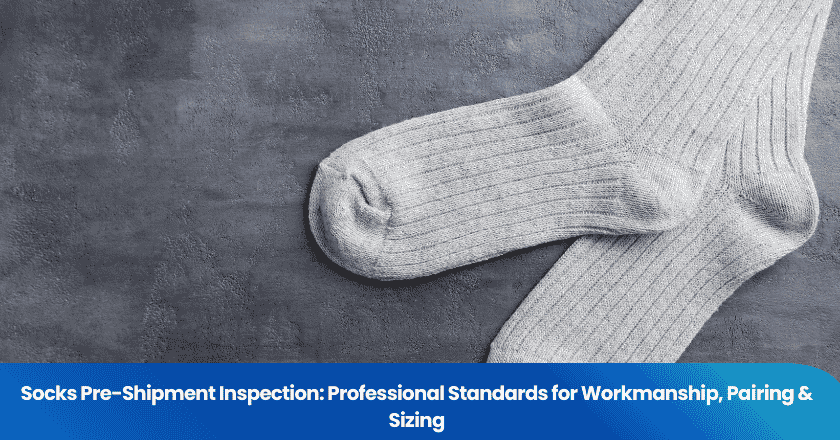
Quality control ensures that products and services meet established standards for performance, reliability, and safety. You encounter quality control in every industry, from manufacturing to e-commerce business development. In 2025, the demand for these skills grows rapidly, especially as global job markets evolve and technology advances. Organizations that invest in quality control see higher productivity and profitability. You improve your career prospects when you master quality control skills, as companies value employees who drive excellence and consistency.
Companies with comprehensive development initiatives see up to 17% higher productivity and 23% greater profitability.
| Evidence | Description |
|---|---|
| Training improves organizational and individual performance | A thorough corporate training and development program may increase quality of work life across all hierarchies. |
| Increased job satisfaction | When employees feel competent, they experience greater job satisfaction, leading to improved quality of work life. |
Key Takeaways
- Quality control skills are essential for career growth and job security in 2025. Mastering these skills makes you a valuable employee.
- Adaptability to new technologies, like AI and automation, is crucial. Embrace continuous learning to stay ahead in quality management.
- Understanding industry standards ensures compliance and enhances your organization's reputation. Stay updated on regulations to avoid penalties.
- Effective quality control leads to higher customer satisfaction. Consistently delivering quality builds trust and encourages repeat business.
- Investing in quality control skills drives organizational efficiency. Reducing waste and improving processes lowers costs and boosts productivity.
Quality Control Overview
Definition
You encounter quality control as a systematic approach that ensures products and services meet established standards. Quality control uses several methods to verify quality, such as acceptance sampling, attributes sampling, and variables sampling. You also see statistical process control, which applies statistical techniques to monitor and control processes. Quality means satisfying stated or implied needs and remaining free of deficiencies. Juran defines quality as "fitness for use," while Crosby describes it as "conformance to requirements." Six Sigma focuses on improving business processes and reducing defects.
| Definition Type | Description |
|---|---|
| Acceptance Sampling | Inspection of a sample to decide whether to accept the entire lot. |
| Attributes Sampling | Notes the presence or absence of a characteristic in each inspected unit. |
| Variables Sampling | Measures and records the numerical magnitude of a characteristic for each inspected unit. |
| Statistical Process Control (SPC) | Application of statistical techniques to control a process, often synonymous with statistical quality control. |
| Quality | Characteristics of a product or service that satisfy stated or implied needs; free of deficiencies. |
| Juran's Definition | Quality means 'fitness for use.' |
| Crosby's Definition | Quality means 'conformance to requirements.' |
| Six Sigma | A method to improve business processes, leading to defect reduction and enhanced quality. |
Objectives
You pursue quality control to achieve several key objectives:
- Consistency: You ensure reliability and predictability in product quality.
- Cost Savings: You reduce operational costs by addressing defects early.
- Customer Satisfaction: You build repeat business and positive word-of-mouth.
- Market Credibility: You enhance trust and reputation in the market.
- Continuous Improvement: You promote ongoing enhancements in processes and products.
Key Components
You build an effective quality control system by focusing on several components:
1. Clear quality standards and specifications help you set measurable expectations.
2. Comprehensive quality control planning allows you to develop systematic approaches, including inspection and test plans.
3. Qualified personnel and clear responsibilities ensure that skilled individuals oversee quality programs.
4. Systematic inspection and testing processes help you catch issues early and document compliance.
You see these components in action across industries. For example:
| Company | Quality Control Practices |
|---|---|
| Ford | Incorporates Lean and Six Sigma principles, rigorous testing protocols, and investment in new quality control technologies. |
| Xerox | Emphasizes customer-focused quality improvement and integrates advanced analytics for real-time quality monitoring. |
| The Ritz-Carlton | Focuses on Gold Standards, continuous service improvement, and employs real-time quality tracking tools. |
Quality control encourages quality consciousness throughout your organization. You reduce waste and rework, lower material costs, and improve resource utilization. Better process control decreases downtime and increases operational efficiency. You also see lower warranty claims and reduced customer service expenses.
| Benefits of Quality Cost Control |
|---|
| Cost Reduction |
| Improved Product Quality |
| Enhanced Customer Satisfaction |
| Increased Operational Efficiency |
| Greater Competitive Advantage |
Quality Control Skills in 2025
Business and Technology Changes
You face a rapidly changing business landscape in 2025. New technologies and strategies reshape how you approach quality control. Automation, artificial intelligence, and digital transformation drive the need for updated quality control methods. You must adapt your skills to keep pace with these advancements.
| Technology/Strategy | Impact on Quality Control Practices |
|---|---|
| Robotic Process Automation (RPA) | Increases accuracy in testing, shortens release cycles, and saves on manual testing efforts. |
| Continuous Improvement Technologies | Enables real-time data collection and analysis, helping identify bottlenecks and quality issues swiftly. |
| AI and Machine Learning | Identifies minor quality variations early, potentially reducing defects by 30% through real-time anomaly detection. |
| Zero Waste Strategies | Focuses on optimizing resource use and reducing waste, allowing for prompt corrective actions. |
| Digital Twins | Provides virtual replicas for real-time monitoring and testing, helping predict defects and optimize production. |
You see that quality control now relies on real-time data and predictive analytics. As a quality control inspector, you use digital twins to monitor production and spot issues before they become costly problems. AI and machine learning help you detect small variations in quality, reducing defects and improving product reliability. These changes require you to blend traditional quality assurance with new technical skills, such as data interpretation and ethical reasoning.
Tip: Embrace continuous improvement by learning how to use new tools and technologies. This approach helps you stay ahead in quality management and ensures you meet evolving industry standards.
Emerging roles in quality control demand a mix of technical and human skills. You need to understand machine learning, programming, and systems integration. At the same time, you must develop problem-solving, adaptability, and cross-disciplinary communication abilities. These skills help you interpret data, maintain cybersecurity, and ensure ethical practices in quality assurance.
| Emerging Roles | Required Skills |
|---|---|
| AI Engineer | Machine learning solutions, programming |
| Robotics Integration Expert | Systems integration, robotics knowledge |
| Digital Twin Analyst | Data analysis, virtual system maintenance |
| Predictive Maintenance Engineer | AI-powered maintenance systems, data interpretation |
| Intelligent Systems Designer | AI-enhanced product design, ethical reasoning |
You must also stay informed about updates to industry standards and requirements. Quality control skills help you adapt to new regulations, such as ISO 9001 and Six Sigma. You learn to apply quality control methods that align with legal requirements and best practices. This adaptability ensures you remain competitive and compliant in your field.
Regulatory and Customer Demands
You encounter new regulatory requirements in 2025 that directly impact quality control processes. Governments and industry bodies introduce stricter standards for accessibility, safety, and sustainability. You must ensure that products and services meet these requirements to avoid penalties and maintain market access.
| Product/Service Type | Description |
|---|---|
| Computers and Operating Systems | Must meet accessibility standards |
| ATMs, Ticketing and Check-in Machines | Must be accessible to all users |
| Smartphones | Must include accessibility features |
| TV Equipment | Must support accessible digital services |
| Telephony Services | Must be usable by persons with disabilities |
| Audio-visual Media Services | Must ensure accessibility in broadcasts |
| Transport Services | Must be accessible for all passengers |
| Banking Services | Must provide accessible banking options |
| E-books | Must be readable by assistive technologies |
| E-commerce | Must ensure accessibility in online shopping |
You use your quality control skills to interpret and implement these standards. You monitor compliance and adjust processes to meet new legal and customer expectations. Staying current with regulations helps you avoid costly mistakes and ensures your products remain competitive.
Customer expectations also evolve quickly. In 2025, you notice that people demand more transparency, sustainability, and personalization. They expect immediate satisfaction and seamless service. You must deliver quality that meets these high standards.
- Customers want transparency in pricing and sustainability.
- They expect brands to adopt sustainable practices.
- Personalization is essential, with tailored experiences in demand.
- Immediate satisfaction and quick service are priorities.
- Human-centric approaches and personal connections matter more than ever.
You play a key role in maintaining product and service excellence. Quality control skills enable you to identify defects early, minimize waste, and ensure products meet or exceed customer expectations. You use analytical abilities and metric analysis to assess output and drive improvement. By mastering quality control, you help your organization achieve operational efficiency and customer satisfaction.
Note: Quality control forms the backbone of successful production and service operations. Your expertise ensures compliance with international standards and supports continuous improvement across all areas of quality management.
Essential Quality Control Skills
To succeed as a quality control inspector or manager in 2025, you need a strong set of quality control skills. These skills help you maintain high standards, adapt to new technologies, and address evolving industry challenges. The most relevant skills for quality control roles include attention to detail, analytical abilities, industry standards knowledge, and adaptability.
| Skill Type | Anticipated Change in Importance |
|---|---|
| Quality Control | Stable but declining |
| Technological Skills | Increasing |
| Analytical Thinking | Increasing |
| Socio-emotional Skills | Increasing |
Attention to Detail
You play a critical role in identifying minor errors or inconsistencies before products or services reach customers. Attention to detail ensures that every output, from documents to finished goods, meets your company’s quality standards. This skill helps you catch issues early, saving time and costs for your organization. Consistency in quality and style becomes essential, especially when you work across large teams or diverse markets. You build customer satisfaction and loyalty by delivering reliable results.
- You spot small defects that others might miss.
- You maintain consistency in quality, even under tight deadlines.
- You help your team avoid costly rework and warranty claims.
Note: Attention to detail supports continuous improvement and strengthens your reputation for excellence.
Analytical Abilities
Analytical abilities drive your success in quality control. You use critical thinking to identify the root causes of problems and apply creative solutions. This skill allows you to interpret data, monitor trends, and make informed decisions that align with organizational goals. Effective communication also plays a part, as you must share your findings and recommendations with your team.
- You analyze data to detect patterns and prevent future issues.
- You use problem-solving techniques to address complex quality challenges.
- You communicate your insights clearly, ensuring everyone understands the path to improvement.
Analytical abilities help you implement quality control methods that keep your processes efficient and your products reliable.
Industry Standards Knowledge
You must stay up to date with the latest quality standards and requirements. In 2025, new regulations and frameworks shape how you approach quality management. Familiarity with these standards ensures compliance and supports your organization’s reputation.
| Standard | Description |
|---|---|
| AICPA's SQMS | New quality management standards effective by December 15, 2025, focusing on risk management and tailored systems for firms. |
| Monitoring Activities | Firms must implement monitoring and remediation processes, with evaluations required annually. |
| Transition Requirement | Firms must transition from quality control to quality management systems by the deadline. |
- You establish systems that meet evolving requirements.
- You conduct annual evaluations to ensure ongoing compliance.
- You help your organization transition smoothly to new frameworks.
Tip: Mastering industry standards positions you as a trusted resource for quality assurance and regulatory compliance.
Adaptability
Adaptability sets you apart in a rapidly changing environment. You respond quickly to new technologies, shifting customer expectations, and updated regulations. This skill enables you to pivot your quality control strategies and maintain high standards, even when facing uncertainty.
- You adjust your approach as new tools and processes emerge.
- You contribute to your organization’s success by embracing change.
- You support the integration of digital transformation and advanced technologies into traditional quality control methods.
Adaptable professionals often outperform their peers and drive improvement across the organization.
How These Skills Address Current and Future Challenges
You face increasing demands for transparency, compliance, and efficiency in quality control. Essential skills help you meet these challenges:
- You enhance transparency and ethical practices by using tools like blockchain.
- You incorporate sustainability and corporate social responsibility into your quality management process.
- You rely on centralized systems for real-time monitoring across global supply chains.
- You use digital inspection tools and frequent audits to ensure supplier compliance.
- You foster a culture of quality through cross-functional training.
- You leverage AI and predictive analytics to identify potential issues before they escalate.
- You revise quality control processes to reduce waste and support sustainability goals.
When you upskill as a quality control manager, you prepare yourself to lead teams, implement new quality control methods, and drive continuous improvement. Mastering these skills ensures you deliver quality products and services that meet both current and future standards.
Benefits of Quality Control Skills
Career Growth
You advance your career when you master quality control skills. Employers value professionals who demonstrate expertise in quality control methods and uphold quality standards. You build a reputation for reliability and precision as a quality control inspector. Your attention to detail and problem-solving abilities set you apart from your peers. You gain opportunities for promotion and leadership roles in quality management. You upskill as a quality control manager and lead teams to achieve continuous improvement. Your commitment to quality opens doors to new industries and specialized positions.
Job Security
You secure your position in industries with strict regulatory requirements by developing strong quality control skills. Many organizations rely on quality assurance specialists, analysts, and managers to maintain compliance and meet quality standards. You review batch records, conduct compliance checks, and oversee documentation. You test products, document results, and collaborate with teams. You lead audits and strategize improvements. The table below highlights roles and responsibilities that contribute to job security:
| Role | Responsibilities | Skills Required |
|---|---|---|
| Quality Assurance Specialist | Reviewing batch records, compliance checks, documentation reviews | Attention to detail, knowledge of GMP guidelines |
| Quality Control Analyst | Testing products, documenting results, collaborating with teams | Lab skills, proficiency with analytical instruments |
| Quality Assurance Manager | Overseeing quality systems, leading audits, strategizing improvements | Leadership, strategic planning, compliance knowledge |
You remain indispensable when you possess the skills to meet evolving standards and requirements.
Organizational Efficiency
You drive organizational efficiency by applying quality control skills. You reduce waste and rework, which lowers production costs. You minimize customer complaints, easing the burden on customer service teams. You standardize processes, boosting workforce productivity. You implement preventive measures that reduce the need for crisis management. Six Sigma helps you identify and eliminate the costs of poor quality, such as defective products and wasted materials. You use data-driven approaches to solve problems permanently. Your expertise in quality control ensures that your organization operates smoothly and efficiently.
- Reduced waste and rework lead to lower production costs.
- Fewer customer complaints decrease the burden on customer service.
- Standardized processes enhance workforce productivity.
- Preventive measures minimize costly crisis management.
- Six Sigma reduces costs by addressing expenses from defective products, service repetitions, wasted materials, and inefficient labor.
- Data-driven approaches help find root causes, allowing for permanent problem-solving.
Customer Satisfaction
You enhance customer satisfaction by maintaining high quality standards. You monitor customer feedback to identify issues that affect satisfaction and brand reputation. You conduct regular check-ins to assess customer satisfaction levels and adapt your quality control processes. Exceptional customer service builds trust and fosters brand loyalty. You create positive experiences that encourage repeat purchases and referrals. Your commitment to quality control strengthens your organization’s reputation and market position.
- Continuous monitoring of customer feedback is essential for identifying issues that affect satisfaction and brand reputation.
- Regular check-ins to assess customer satisfaction levels help businesses adapt and improve their quality control processes.
- Exceptional customer service enhances customer satisfaction and fosters trust, which are crucial for brand loyalty.
- Companies that prioritize customer service often experience increased retention and higher satisfaction rates, directly impacting their brand reputation.
- Brand loyalty is built on trust and positive customer experiences, which are influenced by effective quality control skills.
- Businesses that cultivate brand loyalty benefit from repeat purchases and enthusiastic referrals, reinforcing their market reputation.
Tip: You build lasting relationships with customers when you prioritize quality and continuous improvement in every process.
Developing Quality Control Skills
Upskilling Steps
You can strengthen your quality control skills by following a structured approach. Start by focusing on technical skill development. Learn about statistical process control, real-time data analysis, and AI-powered tools. Build practical experience by taking entry-level positions, shadowing experienced professionals, and joining quality-focused projects. Deepen your industry-specific knowledge by understanding manufacturing processes and regulatory compliance. Set a professional development timeline to achieve certifications and master new skills within the first five years of your career.
- Develop technical skills in statistical process control and AI tools.
- Gain hands-on experience through projects and shadowing.
- Learn about industry regulations and compliance.
- Plan your certification and skill mastery over time.
Tip: Consistent practice and exposure to real-world scenarios help you apply quality control concepts effectively.
Training Resources
You have access to a wide range of training resources to support your growth in quality control. Choose programs that help you identify skill gaps and align with your career goals. Look for training that offers hands-on practice and industry-recognized certifications. Technical skills training in data analysis and e-commerce business development is essential. Leadership development programs improve your decision-making and strategic thinking. Soft skills training enhances your communication and teamwork abilities. Digital literacy training ensures you stay current with technology. Cross-training and on-the-job training provide valuable mentorship and practical learning.
- Identify areas for improvement with targeted programs.
- Select customized learning paths based on your goals.
- Seek hands-on practice and real-life applicability.
- Earn certified credentials to validate your expertise.
Continuous Improvement
You support your ongoing development by embracing a culture of continuous improvement. Take ownership of your work and seek regular feedback. Participate in structured methodologies like Lean or Six Sigma to enhance your quality control process. The Kaizen philosophy encourages you to identify inefficiencies and suggest solutions. Engage in team huddles and suggestion programs to foster collective responsibility for quality. This approach not only improves your skills but also strengthens your organization’s quality management system.
Note: Continuous improvement leads to higher employee satisfaction, better retention, and the development of future leaders in quality assurance.
Quality control skills empower you to drive organizational success in 2025. You see measurable improvements when you focus on assurance and continuous development. Recent case studies highlight how you can:
- Improve measurement accuracy to reduce defect rates.
- Refine process controls and training to boost customer satisfaction.
- Implement corrective actions to restore trust.
- Analyze costs to strengthen financial performance.
- Enhance mechanisms for compliance and satisfaction.
- Build a quality culture for better products.
Investing in these skills prepares you for long-term growth and resilience.
FAQ
What is the main purpose of the quality control process?
You use the quality control process to ensure products and services meet specific standards. This process helps you identify issues early, maintain consistency, and deliver reliable results to customers.
How do you prevent defective products from reaching customers?
You inspect products at every stage of production. You use testing methods and data analysis to catch defective products before they leave your facility. This approach protects your reputation and customer satisfaction.
Why are problem-solving skills important in quality control?
You rely on problem-solving skills to identify root causes of issues. These skills help you develop effective solutions, improve processes, and prevent future problems. You strengthen your team’s ability to maintain high standards.
What training helps you improve quality control skills?
You benefit from hands-on workshops, online courses, and certification programs. You learn new techniques, stay updated on industry standards, and practice real-world scenarios to enhance your expertise.
How does quality control impact customer satisfaction?
You monitor feedback and adjust processes to meet customer expectations. Consistent quality builds trust and loyalty. You create positive experiences that encourage repeat business and referrals.
Grow your business with TradeAider Service
Click the button below to directly enter the TradeAider Service System. The simple steps from booking and payment to receiving reports are easy to operate.





